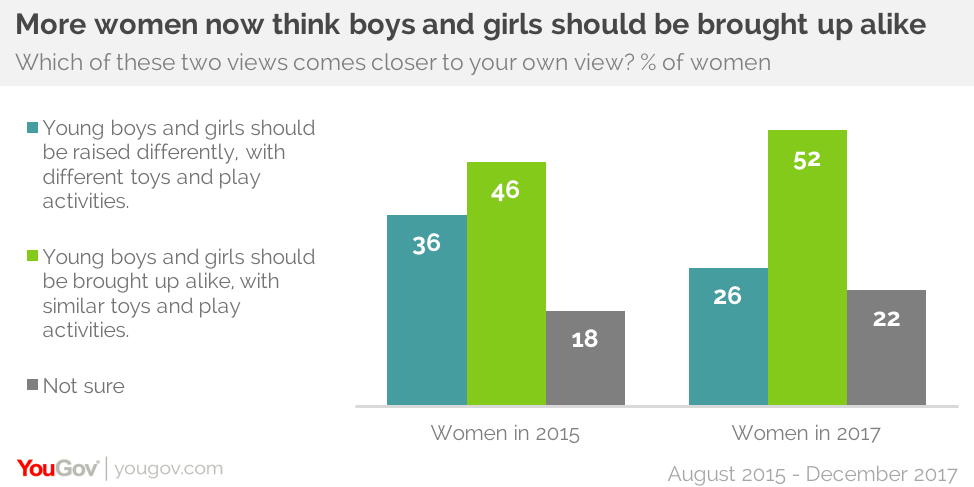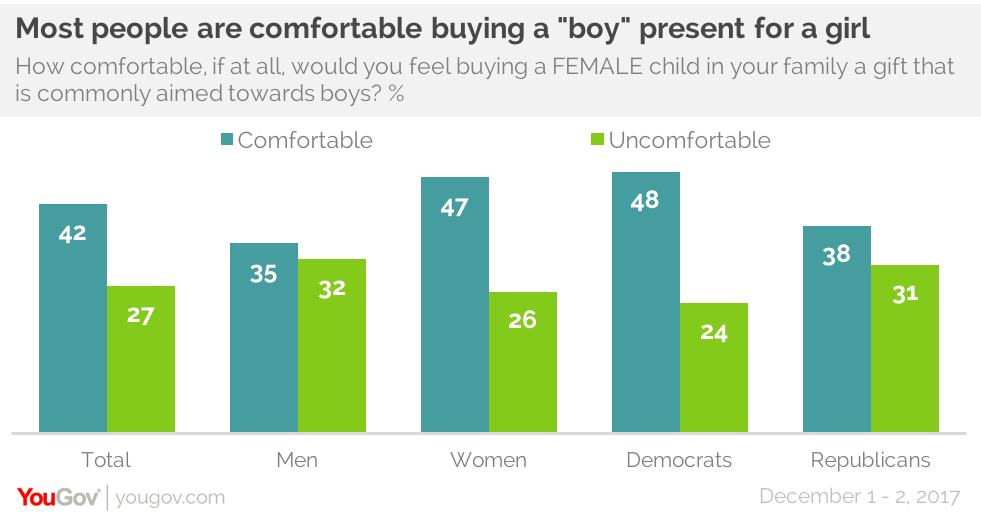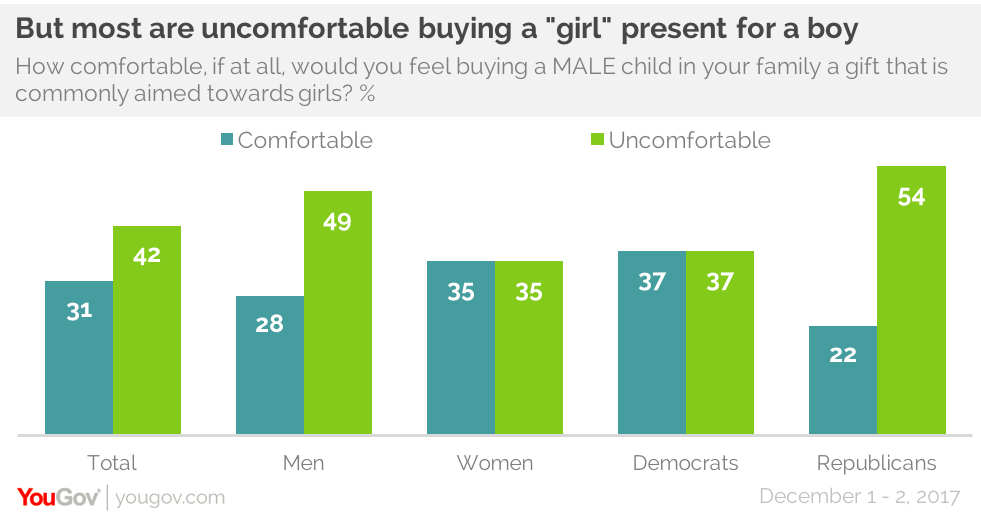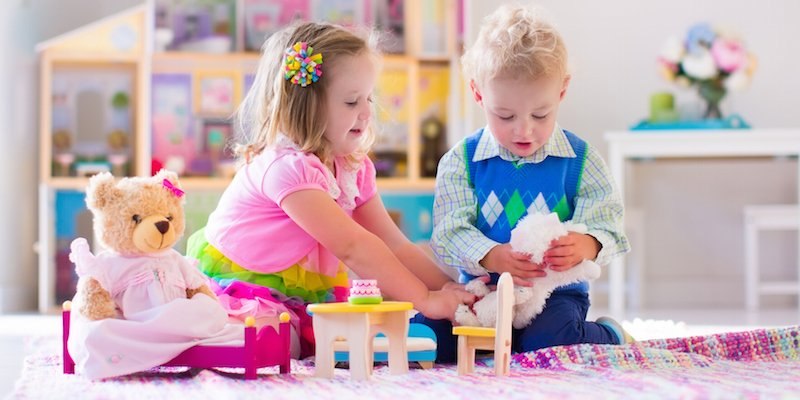Nearly half of men say they'd be uncomfortable buying a boy a toy normally aimed at a girl
In a year that saw women’s marches and a historic number of transgender people elected into office, discussions about gender in America are ever-evolving. But when it comes to gendered toys for kids, not very much has changed since YouGov asked respondents about giving boys and girls different toys back in 2015.
When asked whether boys and girls are either born or taught to like different kinds of toys, Americans in 2017 answered almost identically to those in 2015, with just over half saying that it’s a learned choice and approximately 30% saying it’s inborn.
What has changed is how women think toys should be distributed among kids. In 2015, 36% of women felt that boys and girls should be raised with different toys and play activities; in 2017, only 26% of women feel that way. The numbers for men have remained relatively stable.

When it comes to buying gendered toys as gifts for children in the family, “boy” toys are seen as more universal by almost everyone, while “girl” toys don’t have the same crossover appeal.
When asked if they would be comfortable buying a female child in their family a present normally aimed at boys, 42% of people say they would be “very” or “somewhat” comfortable doing so, while just over a quarter (27%) say they would be “very” or “somewhat” uncomfortable. Both men and women are more likely to say they’d be comfortable than uncomfortable, as are both Democrats and Republicans.

But when it comes to buying a male child in their family a “girl” present, only 31% said they would be comfortable doing so, while 42% said they would be uncomfortable. Women were evenly split on the issue: 35% said they would be comfortable, while another 35% said they would be uncomfortable. Only 28% of men said they would be comfortable, and nearly half (49%) said they would uncomfortable.
There was also a political split on the idea. Democrats were equally divided: 37% said they would be comfortable; another 37% said they would not. Less than a quarter (22%) of Republicans said they would be comfortable, and more than half (54%) said they would not.

Seel the full results and tables here.
Image: Getty










